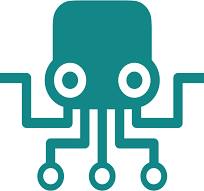Agentic AI Comparison:
Auto-GPT vs Codel
Introduction
This report provides a detailed, data-driven comparison of two AI agent frameworks: Auto-GPT and Codel. The analysis covers five critical metrics—autonomy, ease of use, flexibility, cost, and popularity—based on available data, community feedback, and technical documentation as of June 2025.
Overview
Codel
Codel is a lightweight, agentic code execution and automation tool with a focus on scriptable productivity. Built for simplicity and directness, Codel enables users to define and run programmable workflows and bots, mainly targeting automation of coding and daily tasks with streamlined scripting. It is less complex than full agent frameworks but emphasizes quick deployment and minimal configuration.
Auto-GPT
Auto-GPT is a pioneering open-source autonomous AI agent framework. Designed to chain LLM-powered tasks together, it executes high-level user goals through iterative reasoning, planning, and tool use with minimal human oversight. Auto-GPT's modular design has influenced an entire generation of agent frameworks, and it supports broad customization and integration capabilities.
Metrics Comparison
autonomy
Auto-GPT: 9
Auto-GPT is designed for high autonomy, capable of independently reasoning about goals, decomposing tasks, and interacting with tools and APIs to achieve objectives with minimal user intervention, often executing complex multi-step operations.
Codel: 5
Codel supports basic agentic automation through scripts, but its workflows generally require more explicit user definition and intervention, making it less autonomous compared to broader agentic frameworks.
Auto-GPT offers far greater out-of-the-box autonomy for multi-step tasks, while Codel prioritizes user-defined, script-driven automation.
ease of use
Auto-GPT: 6
Auto-GPT has made progress in user-friendliness since its initial launch, but still requires significant setup, configuration, and understanding of agent concepts. The learning curve can be steep for non-technical users.
Codel: 8
Codel is lightweight and straightforward, with a focus on simplicity and minimal dependencies. Its scripting-oriented workflow makes it accessible, especially to users comfortable with basic automation but not with complex agent frameworks.
Codel is easier for users to set up and use quickly, making it more approachable, while Auto-GPT remains more powerful but harder for newcomers.
flexibility
Auto-GPT: 8
Auto-GPT is highly flexible, supporting wide-ranging integrations, custom plugins, and tool use. Its modular architecture allows adaptation across diverse problem domains.
Codel: 6
Codel’s flexibility is centered on scriptability, permitting varied automation tasks, but lacks deep integration ecosystems or plugin systems, limiting its breadth compared to agentic frameworks.
Auto-GPT is more flexible for advanced integrations and custom agent behaviors; Codel trades some flexibility for simplicity.
cost
Auto-GPT: 7
Auto-GPT itself is open-source, but operational costs can be significant depending on LLM API usage (e.g., OpenAI, Azure). Users are responsible for compute and API charges, making costs variable.
Codel: 8
Codel is open-source and can be run locally with minimal resource requirements. Unless integrated with paid APIs, its operational costs are typically lower and more predictable.
Both are open-source with no licensing fees, but Codel usually incurs lower running costs due to its simplicity and local-first execution paradigm.
popularity
Auto-GPT: 9
Auto-GPT is one of the most widely known and adopted agent frameworks, with an extensive GitHub community, broad media coverage, and many forks and derivatives.
Codel: 4
Codel has a smaller but dedicated user base, with usage largely limited to developer automation and niche productivity scenarios. Its community and ecosystem are much less prominent compared to Auto-GPT.
Auto-GPT enjoys significantly higher visibility, a larger community, and a more active development and support ecosystem.
Conclusions
Auto-GPT and Codel target different user needs within the agentic automation landscape. Auto-GPT offers superior autonomy, flexibility, and popularity, making it suitable for complex, high-level automation tasks and for users who require extensibility and integration. Codel appeals to users seeking quick, low-effort automation with minimal setup, providing high ease-of-use and low cost but is less powerful and less widely adopted. Users should choose Auto-GPT for advanced and scalable agentic applications, while Codel is ideal for straightforward, script-driven task automation.

